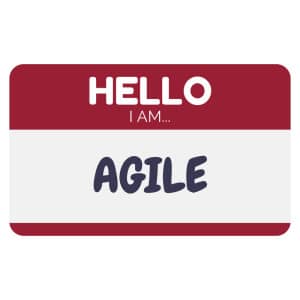26 Aug Why Learning Trumps Knowledge

Change itself creates stress and challenge for leaders. And change is an ever-present facet of modern life. Smart people with knowledge often want to draw on “how we have always done things,” or even “how other companies are doing this,” or “how my/my mentor’s/my investor’s last company solved this problem.” When everything is changing, that’s not good enough, and often revives strategies that addressed yesterday’s problems, not today’s reality or the emerging challenges of the future.
So how do you get better at handling change?
One of the keys to change-resilient leadership is learning agility. It is the ability to learn quickly on the fly and apply that learning to new and emerging situations to create success the first time around. The Army War College emphasizes that learning agility is important, stating “We recognize that leadership in complex adaptive systems relies on relationship-building over role-defining, loose coupling over standardization, learning over knowing, self-synchronization over command and control and emergent thinking over planning based on estimates.” So if the ultimate command and control organization is shifting to an agile leadership model, other organizations need to look closely at how the old models are serving them today.
Often we value the “expert” with the deepest knowledge over the “learner” with the greatest ability to adapt. Expertise can bypass common mistakes and lead quickly to the heart of a problem, and it can also overemphasize tried and true solutions, standard thinking and common assumptions. When change is ever-present, learning trumps knowledge, and you are more effective when you learn and adapt quickly than if you are expert in a given field.
We are often called in to work on strategies and organizations in industries where we have no deep expertise. This outside status allows us to ask questions considered closed and answered by the members of the team. When we bring this beginner’s mind to the situation, we often discover that the answer to those closed questions is less closed than previously thought, and that the answer is evolving or shifting. Great teams use this to learn and adapt new strategies and revisit fundamental questions in new ways.
Expertise-reliant teams tend to fall back to old answers and resist questioning old beliefs or revising their views of the world, the market, technology or competitors. They take longer and require more proof to shift their strategies. In today’s world, they may be left behind as more agile competitors adapt more quickly and capture the market.
To adapt to change and build resilient organizations, develop and reward learning agility to continually build new knowledge, test assumptions and embrace change as a catalyst for growth. Emphasize learning, experimentation, questioning and strategic adaptation over “best practices” from decades-old models that haven’t kept up with the latest research, shifts in understanding or new market dynamics.
“Nothing stops an organization faster than people who believe that the way you worked yesterday is the best way to work tomorrow.” – Jon Madonna
Related Articles
Ready to fearlessly provide feedback and get positive results?
Our Fearless Leaders MasterClass® Program will help you develop the emotional intelligence and leadership skills needed to have effective conversations.
Sign up to reduce manager overwhelm and employee turnover.




